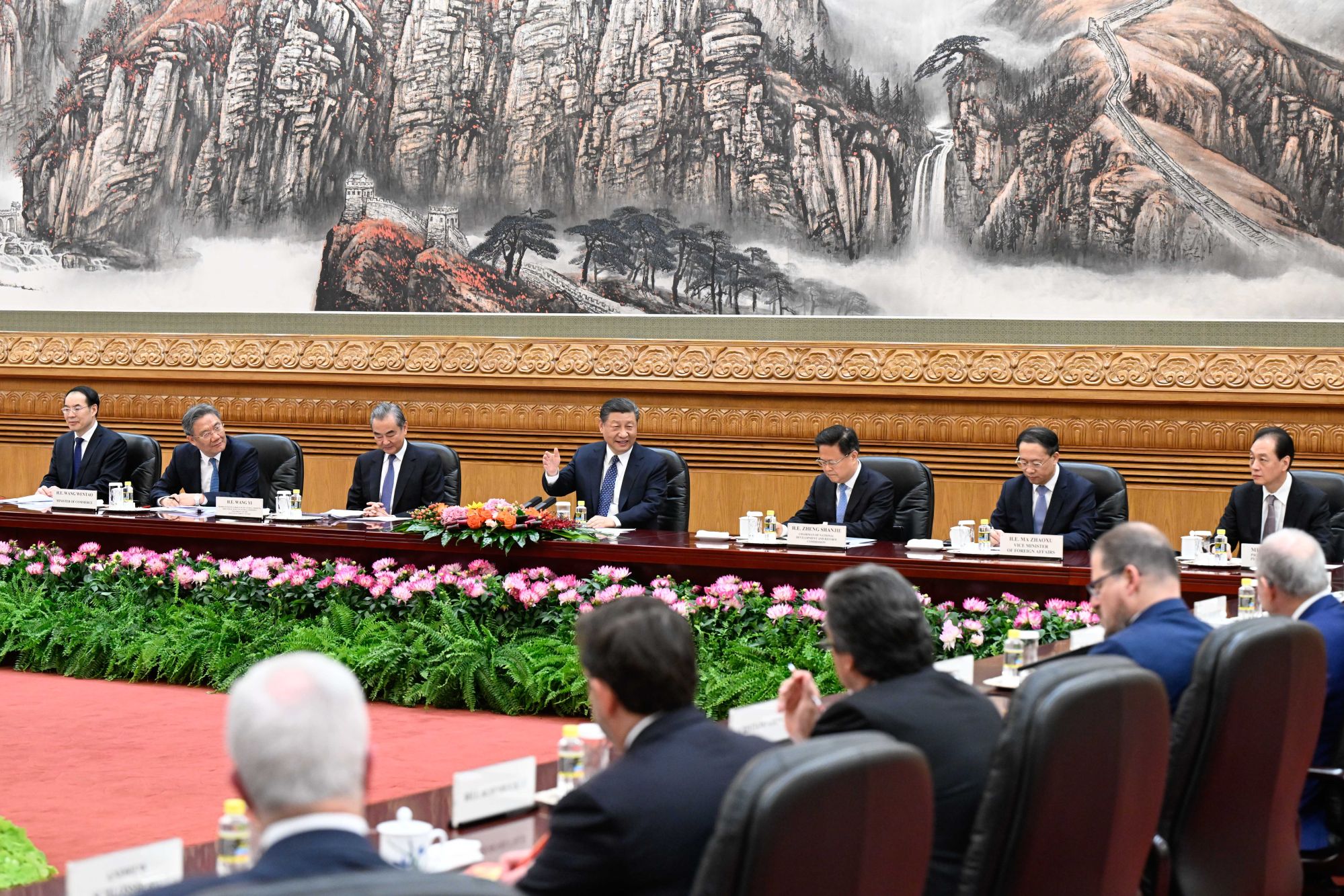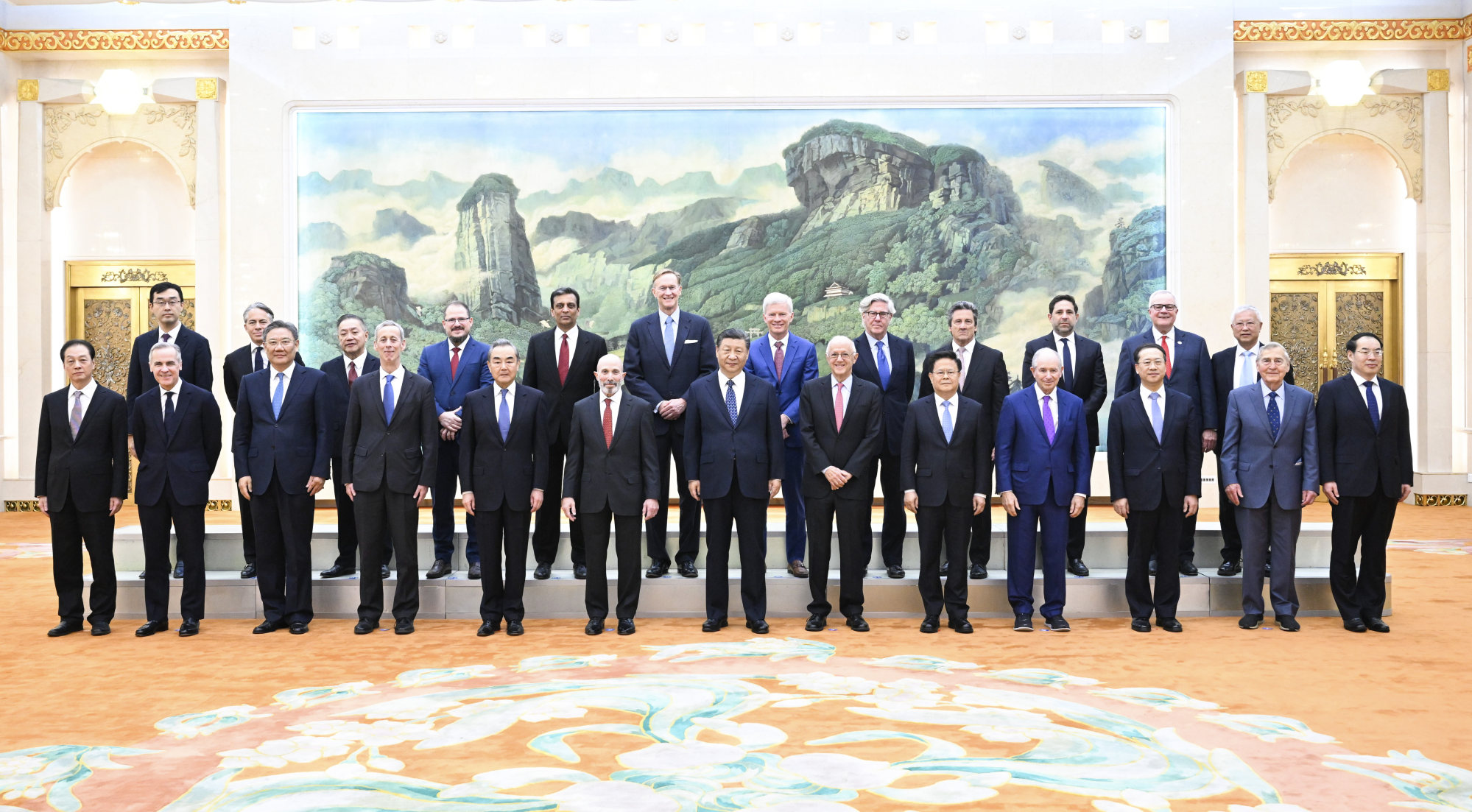„China's reform will not stop and its opening up will not stop,” the Chinese leader said, according to a report by state broadcaster CCTV.
„To comprehensively deepen reform and steadily develop a market-oriented, law-based and world-class business environment, China is planning and implementing a number of key measures. This will create a wider space for growth for US and other foreign businesses.

The meeting was held at the end of the annual China Development Forum in Beijing, where dozens of foreign business leaders were told the economy was resilient and would maintain its potential.
Senior executives from Blackstone, Bloomberg, Qualcomm, Pfizer and FedEx were in the meeting with Xi. Evan Greenberg and Stephen Orlins of the National Committee on US-China Relations were seen standing next to Xi in a group photo released by state media.
China has stepped up its charm offensive as it tries to attract foreign investors, introducing new measures last year to expand market access, boost tax and financial support and protect intellectual property rights.
Official data showed foreign investment in China fell 8 percent last year – the first drop since 2012 – amid tighter restrictions, anti-espionage crackdowns on foreign companies and rising tensions with the United States.
As competition intensifies, the US has also increased trade and technology restrictions against China. In addition to the semiconductor ban and other measures aimed at curbing China's high-tech growth, Washington is targeting Chinese electric vehicles with national security inspections and anti-subsidy rules. Beijing lodged a complaint with the World Trade Organization on Tuesday about „discriminatory subsidies”.
US slams China for WTO complaint over EV subsidies
US slams China for WTO complaint over EV subsidies
At the meeting, Ji said both sides should respect and play by market rules.
„In the face of new situations and changes in Sino-US economic and trade relations in recent years, the two sides should act in accordance with mutual respect, mutual benefit, equal consultation, economic laws and market rules, expand and deepen mutual benefits. Economic and trade cooperation, each other Respect developmental rights,” he said.
The two powers agreed to strengthen ties after a summit between Xi and US President Joe Biden in San Francisco in November, and working groups have been formed in areas ranging from trade and counter-narcotics to climate change. But issues like Taiwan and the South China Sea continue to strain relations.
Xi told the US delegation that the countries' common interests „have not decreased but increased” and that they should help rather than hinder each other.
„The United States must properly handle sensitive issues, maintain the momentum of stabilizing China-US relations, actively explore the correct path to harmony, and promote the long-term, stable and healthy development of relations,” he said.
„China-US relations cannot go back to the old days, but they can embrace a bright future,” he added.

US officials at the meeting said the San Francisco summit had boosted confidence in the future of US-China relations, and they praised Beijing's recent efforts to further reform and open up, CCTV reported.
The statement said the US delegation agreed that the „Thucydides trap” was „inevitable”.
They refer to a theory often used to describe US-China relations about the potential for conflict between a rising power and a hegemonic power.
According to a CCTV report, US representatives said during the meeting that economic ties between the US and China are „closely linked” and that only through peaceful coexistence can the two countries achieve growth and prosperity.

„Oddany rozwiązywacz problemów. Przyjazny hipsterom praktykant bekonu. Miłośnik kawy. Nieuleczalny introwertyk. Student.
